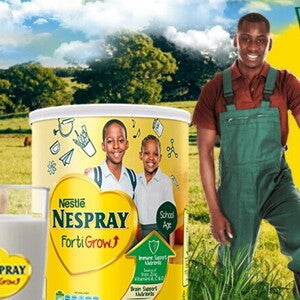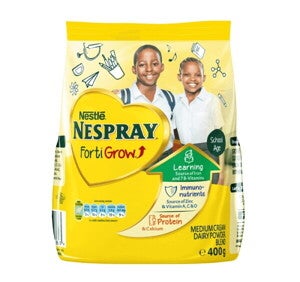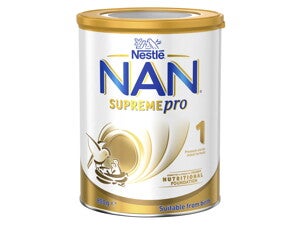Search
10 Weeks Pregnant - Trimester 1
11 Weeks Pregnant - Trimester 1
When to feed CERELAC to your baby?
How to prepare CERELAC?
What is CERELAC made of?
NAN A.R. Infant Formula for Babies with Regurgitation – 800g
Nestlé NAN A2 Stage 1, Premium Baby Formula From Birth – 800g
Apple Mousse
Broccoli and Avocado Puree
Baby Dhal
BMI for adult
Banana Pikelets
Baked Banana Custard
Ricotta, Banana and Honey Fingers
Nestlé NAN COMFORT 4, Toddler 2+ Years Milk Drink – 800g
Food choices for a healthy pregnancy
Nestlé NAN COMFORT 2, Follow-On Formula 6-12 Months – 800g

How to Calm a Fussy Baby
Babies thrive on love, attention and responsive feeding.

iPlug Yes’kolo
WELCOME TO iPLUG YES’KOLO
NESTLE® NESPRAY®’s iPlug Yes’kolo supports learning by empowering caregivers to nurture their children’s future and well-being with love

Nurturing futures by nurturing the planet
From locally sourced 100% fresh milk, solar power, to zero-water-waste factories and farms.

What is Baby-Led Weaning?
Apart from the traditional 3 stage process of introducing solids, you may find other ways or methods to follow.

What Foods To Avoid When Pregnant
Everything you eat and drink can affect your baby. Some foods can cause serious problems and need to be avoided. Don't be scared; be informed.

Grade 6
Common Fractions - substraction, multiplication, mixed fractions and addition operations

Let’s check in on their daily routine
A daily routine can work like magic, and sometimes it’s a challenge to just keep up with it. One thing’s for sure, routines are very important in nurturing your child’s future.

Give their immune system a much-needed boost

NESTLÉ® NESPRAY<sup>®</sup> FortiGrow<sup>®</sup>
NESTLE® NESPRAY® FortiGrow® is a medium cream dairy powder blend that is a source of nutrients to help support your child’s development and get their mind and body ready for school. NESTLE® NESPRAY® is a source of 10 vitamins, iron and zinc!
Keeping up Diet Variety for your 9-12 month old
Materna® Prenatal Multivitamin + DHA Supplement Combo Pack
Prenatal DHA| Materna® Prenatal Gummies + DHA
Due date calculator

Nestlé NAN SUPREMEpro 1, Premium Baby Formula From Birth – 800g
NAN SUPREMEpro 1 is a premium starter infant formula that is nutritionally complete for healthy infants from birth. Infants over 6 months of age will need additional nourishment. Learn more about transitioning.
